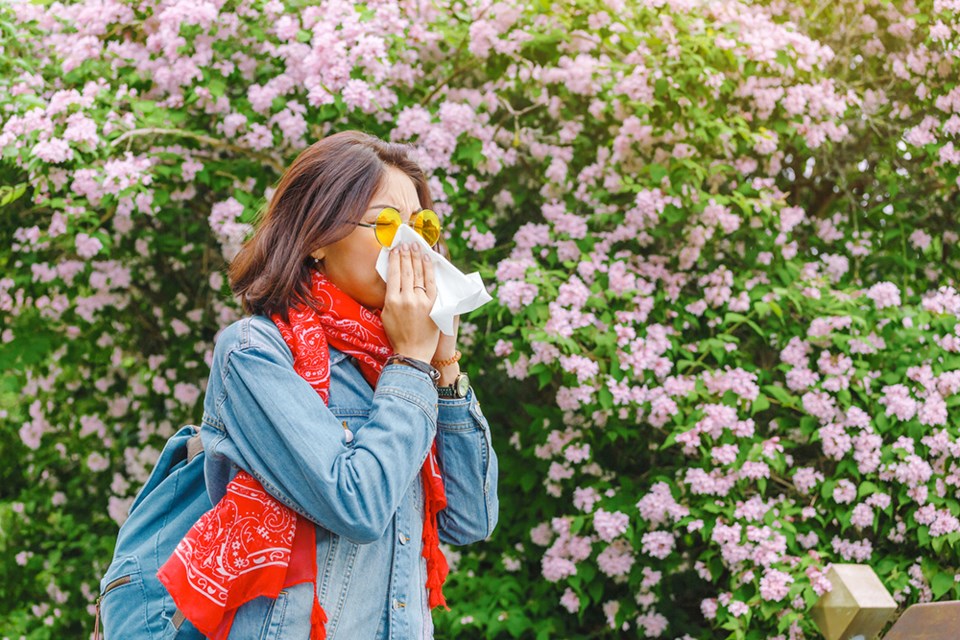If you’re an avid gardener like me, you might be starting to panic a bit. Not in a bad way, but if you’re also like me and maybe have a bit too many irons in the fire, you didn’t finish tidying up the garden last fall.
But here in qathet, with the recent appearance of snowdrops and crocuses, spring is on its way – whether we’re ready or not!
As someone who grew up with pretty severe allergies, spring also heralds a lot of health challenges, too. While I do not suffer anymore, I can still feel the seasonal transition in my body.
I don’t need to check the pollen forecast to know some trees are already releasing pollen – especially when the sun is out and it warms up. I fully understand the sense of helplessness that begins to kick in during early spring if you’re an allergy sufferer, when everyone else is celebrating spring but you’re silently dreading it. And it doesn’t help if you’re stressing about your organizational skills as a gardener.
According to the ancient Indian system of medicine called Ayurveda, spring is the season when the warming sun stimulates and activates the quiescent vitality of the earth. Through its warmth and light, the spring sun dissolves the inertia and coldness of winter, releasing a flowing stream of nourishment to support the myriad beings. Ideally, there is a gentle and orderly flow to this, but in reality, it often occurs in fits and starts, in a highly variable pattern that can create a lot of chaos.
Ayurveda says that over winter this quality of inertia and coldness also increases in the body, and with the warmer weather, it likewise begins to flow and potentially create disturbance. This is analogous to the snow melt that fills the streams and creeks, causing them to overflow and flood the land.
In this way, Ayurveda teaches that we need to anticipate these changes and prepare accordingly, clearing out the body’s “drainage channels” to prevent future blockage and “flooding.”
It is this feature of spring that supports the traditional practice of cleansing, detoxification and fasting. Implementing such a regimen at the right time prevents congestive issues and inflammation, lessening the chance of not only seasonal allergies but cold and flu. Not just for myself, but I have helped hundreds of patients take back their immune health and resolve chronic allergies – not only to pollen, but other environmental triggers and foods as well.
One of the important things about Ayurveda, however, is that this approach to cleansing and detoxification must be tailored to individuals, and in many cases, is very different from the popular, fad-driven approaches most people are familiar with. Employing this measure as a timely approach before the arrival of spring can go a long way to preventing seasonal allergies, getting you out of the endless cycle relying on antihistamines and nasal steroids.
Todd Caldecott is a medical herbalist and Ayurveda practitioner based in the qathet region, and can be reached through the Dogwood School of Botanical Medicine website (dogwoodbotanical.com) or by email at [email protected].
Join the Peak's email list for the top headlines right in your inbox Monday to Friday.



